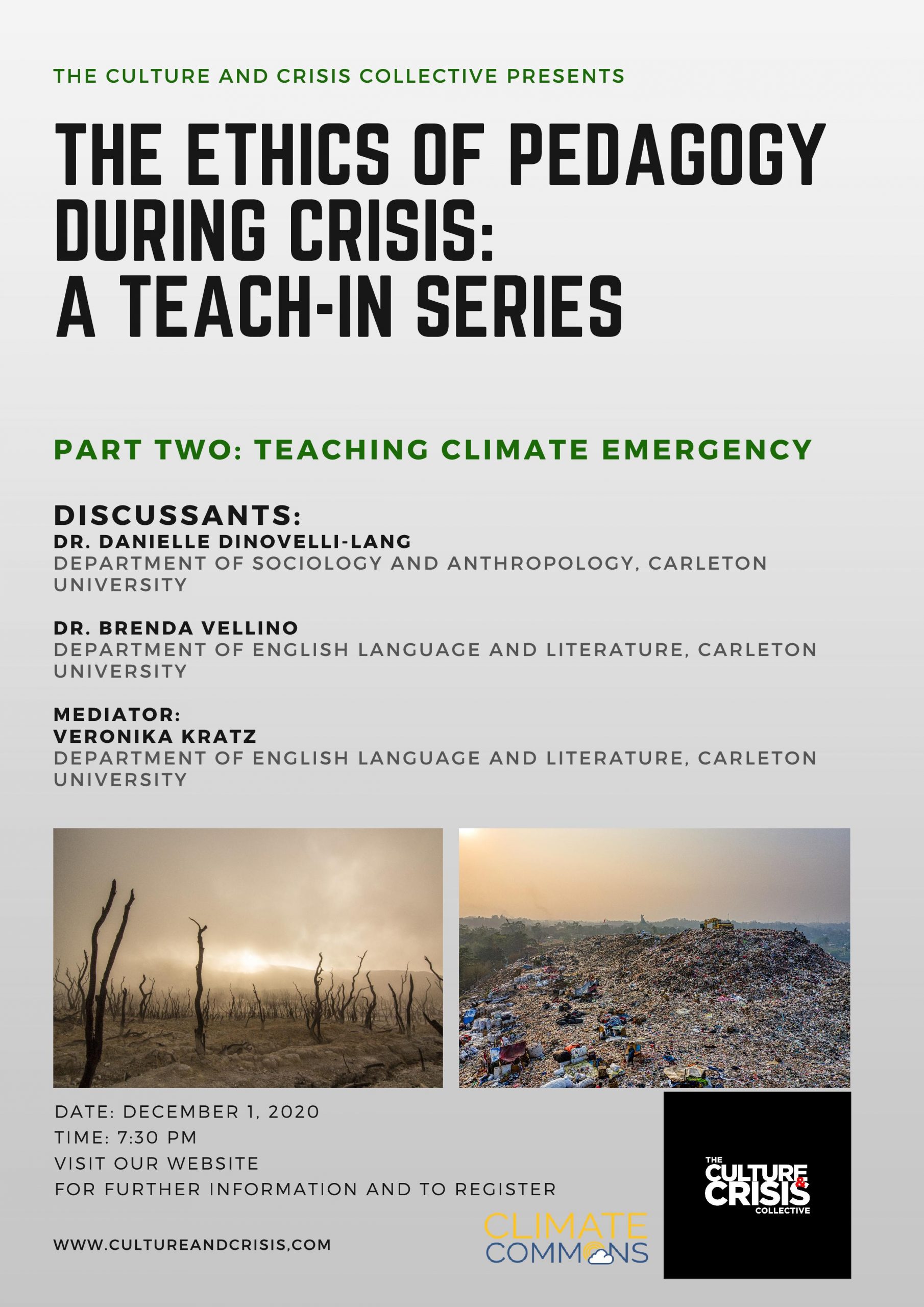Please join us for “The Ethics of Pedagogy and Crisis Pt. 2: Teaching Climate Emergency,” a teach-in jointly organized by the Culture and Crisis Collective and the Carleton Climate Commons. The teach-in will take place over Zoom on Tuesday, December 1st at 7:30PM EST. To register for the event, head to our website here.
At the first event in our teach-in series, The Ethics of Pedagogy During Crisis, we discussed the use of contemporary documentary images in our classrooms. We struggled with what it meant to work with uncomfortable images and topics, and shared moments of difficulty or even failure from our own experiences. Dr. Monica Patterson spoke of the importance that this kind of difficult knowledge has in the classroom, and the pressing need to engage students in issues that have no easy solutions. For our second event we have collaborated with the Carleton Climate Commons to build off these ideas and consider pedagogical approaches to the climate emergency.
We situate our conversation around the climate emergency that we are all living with to think critically about the knowledge, experience, and emotions that we and our students bring to the classroom. Teaching about the vast environmental degradation of our planet must also contend with the immense scale of the problem – one of the key challenges to teaching the climate emergency is remaining attentive to its interconnection with various, overlapping systems of oppression and exploitation that both create and maintain opportunities for environmental destruction. Our conversation invites collaboration across disciplines to consider the role of systemic thinking in climate pedagogy.
Our conversation will consider:
- Given our rapidly changing collective experience of the climate crisis, and given students’ lived experience of this crisis, which has intimately and profoundly influenced their lives, what approaches have you taken to the climate emergency in the classroom? And how have our approaches to teaching climate emergency evolved in response to this reality?
- We now live in a world of climate change. How do we negotiate the range of reactions and emotions that are an inevitable part of this conversation? When are these emotions instrumental to climate pedagogy, and when are they a barrier?
- How have you made room, in your discipline, for the study of climate change? How have you navigated established disciplinary boundaries?
- How do you encourage students to think structurally? How do you approach questions of scale and/or interconnection that pertain to the climate emergency (ie. local vs. global poverty, racial justice, resource scarcity, etc.)?
The event will feature a conversation between moderator, Veronika Kratz, and our two speakers, Danielle Dinovelli-Lang and Brenda Vellino, which will begin a broader discussion among all of us who attend.
